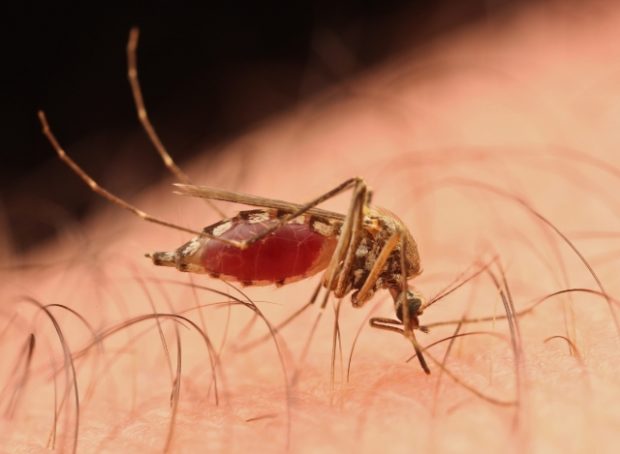Malaria: Drug-resistant parasites discovered in sub-Saharan Africa

Parasites from the genus Plasmodium are transmitted by bites from the female anopheles mosquito. Image: DeVil79/IStock.com
A report published in the journal Nature Medecine is sounding the alarm about the presence of malaria-causing parasites that are resistant to artemisinin, the molecule used to treat this infectious disease.
Their presence has been detected in several countries in sub-Saharan Africa through research conducted by the Institut Pasteur, along with the National Malaria Control Program in Rwanda (Rwanda Biomedical Center), the WHO, Cochin Hospital and Columbia University in New York, USA.
The drug ACT has been the anti-malarial treatment recommended by the World Health Organization for the past 15 years. It is made of a fast-acting derivative of artemisinin, an essential molecule for treating the disease. A mutation of the K13 gene in the parasites of the Plasmodium genus can cause the development of resistance to this molecule. The discovery of a significant presence of drug-resistant parasites in the sub-Saharan region is very bad news, as 90% of malaria cases are concentrated there.
Closely monitored developments
This mutation, rare in Africa, has recently been detected in Guyana and Papua New Guinea. The organizations which carry out molecular monitoring of drug resistance in Africa, including the researchers at France’s Pasteur Institute, have measured the emergence of parasites carrying the mutation that are thus resistant in vitro to treatments derived from artemisinin.
Other cases of resistance in the past
During the 1980s, resistance to the treatment then used against malaria, chloroquine, became widespread. This is thought to have led to the deaths of several million people, especially small children. A simulation of the same scenario occurring with artemisinin predicts a disastrous 78 million cases and 116,000 additional deaths.
Malaria is transmitted by parasites of the genus Plasmodium and is present in 89 countries worldwide. It represents a significant public health threat, as it represents 3.2 billion potentially exposed to this infection. There is still no vaccine against the disease. NVG
RELATED STORIES:
Vaccine to protect pregnant women from malaria yields promising results
Erobotics, a solution for the sexual health and well-being of astronauts